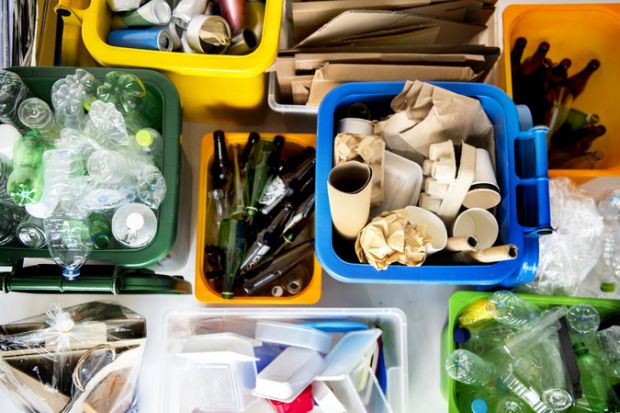
It seems that being sustainable is just one more thing that students have to remember to do alongside reading and coursework, getting work experience, socialising and staying healthy.
But it might not be as tricky or time-consuming as you think.
I’ve spoken to a variety of experts at Loughborough University and have collated their top tips for being more sustainable in daily life.
1. Food waste
Did you know that food waste can be just as damaging for the environment as the plastic packaging it comes in? And wasting food wastes money, too.
I spoke to Elliot Woolley, senior lecturer in sustainable manufacturing at Loughborough, about the best way to cut food waste in the home. To keep waste to a minimum, his key advice includes:
- Planning your meals
- Purchasing only what you need and avoiding deals that tempt you to buy more
- Storing food properly
- Understanding the difference between “best before” and “use by” dates
- Cooking only what you’re going to eat
- Putting away leftovers safely and remembering to eat them.
I have found that using a meal planning template is a great way to outline my meals and help me reduce food waste.
2. Plastics and other unsustainable materials
I love going to the beach, but unfortunately every time I go, I come across pieces of rubbish littering the shore.
Rhoda Trimingham, an expert in sustainable design, has pointed out simple changes that can be made in the home to shrink plastic use:
- Opt for reusable water bottles, coffee cups and metal straws (you can get straws that fold up and clip on to your bag for when you go out)
- Swap bottled products for solid shampoo and soap; keep an eye out for refillable make-up, and switch to reusable bamboo wipes and cloths
- Prepare food at home and take a lunch box rather than buying products that come in packaging. Choose reusable cutlery
- Use reusable shopping bags, and keep one on you at all times – you never know when you’ll need it
- Make cleaning products at home to cut out unnecessary packaging and plastic. You can make a multi-purpose cleaner by mixing water, white vinegar and essential oils in a reusable spray bottle. An abundance of recipes for cleaning products can be found online.
3. Recycling
Recycling can often be confusing, so Loughborough University’s environmental manager Nik Hunt advises:
- Checking out local arrangements for recycling through the council website and/or your university website
- Make sure recyclable products are clean and dry before putting them in the bin
- Take your own containers and bags to supermarkets when buying food
- Separate food waste where schemes exist – or see if you can create your own compost.
4. Fashion
Fast fashion is one of the biggest contributors to climate change, as it relies on the constant production of new garments that people wear only once or twice. So what better way to express your individuality and combat climate change than finding your unique look in charity shops?
This is one of textile expert Chetna Prajapati’s top tips. Here’s what else she recommends to keep your wardrobe stylish and sustainable:
- Identify gaps in your wardrobe before going shopping to reduce impulse buying and purchasing duplicate items. Try to choose quality over quantity
- If you’re going to wear an item only once, consider hiring, renting or leasing clothing
- Buy from brands that support sustainable sourcing and manufacturing processes. Choose items that have been produced using renewable natural fibres or sustainably sourced fibres
- Buy pre-owned or vintage clothes rather than new. Extend the life of your clothes by donating unwanted items to charity and second-hand shops. If clothes are heavily worn or damaged, they can be recycled
- Read care labels; try to avoid washing garments unnecessarily; and where possible wash at 30°C and line dry. Look to repair and alter items to extend their lifespan.
5. Heat and energy
Ben Roberts, a research associate looking at the development of smart meter technologies, offers these tips to reduce energy use at home:
- Set a timer/schedule to heat rooms and flats only when you need to
- Don’t leave windows open when the heating is on or when you are out
- Turn appliances and devices off properly rather than leaving them on standby. Change any incandescent lightbulbs to energy-saving ones such as LED bulbs
- When looking for a new student house, try to find one with good insulation and double glazing. This will help you save money and energy.
6. Travelling
Elliot Brown, Loughborough’s sustainable travel officer, recommends:
- Leaving your car at home and cycling or walking everywhere
- Using public transport – and being sure to check out the money-saving deals that bus and train companies offer students.
Most universities have an environmental society, a shop, a volunteering project that you can get involved with. If not, you can be the one to set it up.
These are just some small ways that you can become more sustainable in many different areas of your life.
Read more: The student guide to sustainability





















Have your say